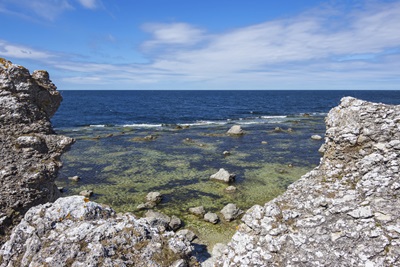Contributing to an ambitious research project on marine biodiversity
We are partner in a major research project – BIO-C3 – to investigate the causes and consequences of changing biodiversity in the Baltic Sea.
 We are partner in a major research project – BIO-C3 – to investigate the causes and consequences of changing biodiversity in the Baltic Sea.
We are partner in a major research project – BIO-C3 – to investigate the causes and consequences of changing biodiversity in the Baltic Sea.
BIO-C3 has ambitious goals and will:
- investigate genetic adaptation, eco-physiology, colonisation and role of native versus non-indigenous species
- advance understanding of functional links between biodiversity, external pressures and food-web interactions
- improve future projections of trends in biodiversity
- assess implications for environmental management and the sustainable use of ecosystem goods and services
We’ll contribute with analyses of fine-scale variations in two case areas in the Baltic Sea. In these areas, we’ll study the cumulative effects of drivers such as eutrophication and climate. We’ll develop new ecological modelling tools that focus on higher trophic levels and responses on more than one trophic level, as well as new tools for implementing species dispersal patterns in environmental management.
The new advanced ecological modelling tools will include energetic models of key species of water birds and fish as well as methods to describe and analyse connectivity between key flora and fauna habitats. The modelling results will – among other things – be used to assess the importance of marine protected area networks s.
The project, which commenced on 1 January this year, will run till June 2017. It is funded by the Baltic Organisations’ Network for Funding Science EEIG (BONUS) – and includes 13 partners:
- Denmark
- Germany
- Helmholtz Centre for Ocean Research Kiel (coordinating partner)
- Institute for Hydrobiology and Fisheries Science, University of Hamburg
- Thünen Institute for Baltic Sea Fisheries, Rostock
- Estonia
- Estonian Marine Institute, University of Tartu
- Finland
- Finnish Environment Institute, Helsinki
- Åbo Akademi University, Turku
- Lithuania
- Marine Science and Technology Center, Klaipėda University
- Poland
- National Marine Fisheries Research Institute, Gdynia
- Sweden
- Stockholm University
- University of Gothenburg
- Swedish Meteorological and Hydrological Institute, Norrkoping
For further information, please contact: Henrik Skov hsk@dhigroup.com or Anne Lise Middelboe ami@dhigroup.com
Read more